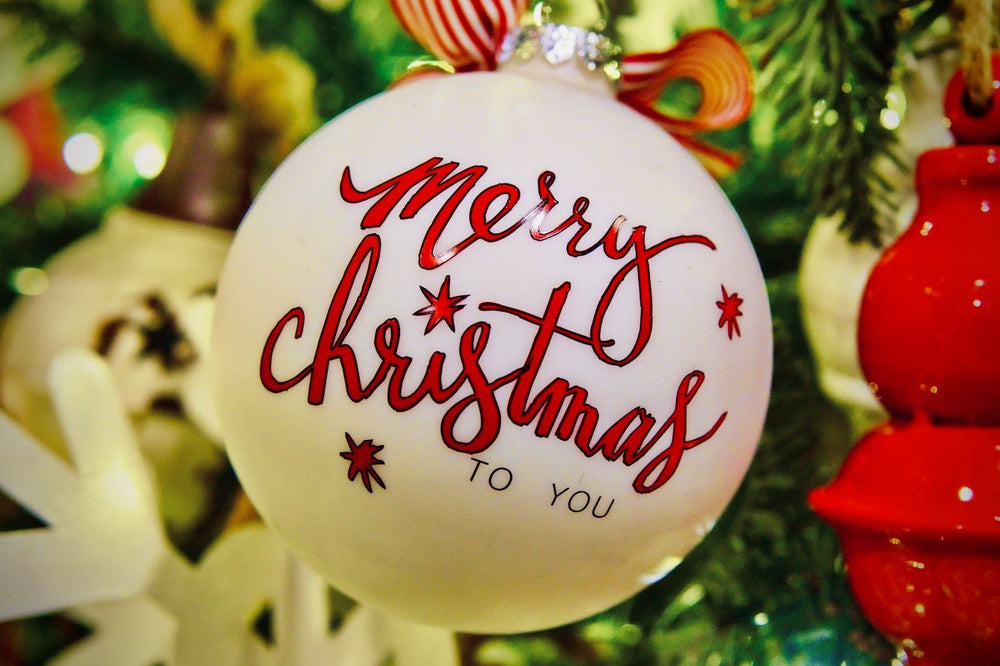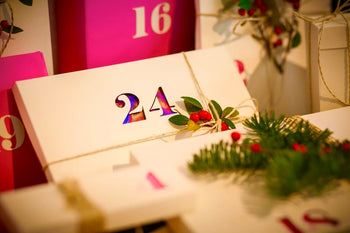The festive season of Christmas is a time of joy, togetherness, and merriment that transcends borders and cultures. As winter approaches, people across the world come together to celebrate this heartwarming holiday, each culture infusing its own unique traditions and customs into the festive atmosphere. One of the most delightful aspects of the holiday season is the diverse array of ways people wish each other to enjoy the holiday season.
From the vibrant streets of Mexico to the cozy homes of Japan, let's unwrap the magic of Christmas and discover how a simple phrase carries the spirit of celebration and togetherness across languages and borders.
"Merry Christmas" - United States & Canada
The phrase "Merry Christmas" is more commonly used in the United States and Canada, among other countries. The term "merry" conveys a sense of merriment, cheerfulness, and lively celebration. Its origin can be traced back to Middle English, where "merry" meant "pleasant," "delightful," or "joyous." When people wish each other a "Merry Christmas," they evoke the image of a joyful and festive holiday season, filled with laughter, happiness, and a sense of unity.
The cultural significance of "Merry Christmas" lies in its association with the exuberant celebrations and commercial aspects often observed in these countries. The phrase reflects the excitement of gift-giving, decorating homes with lights and ornaments, and coming together with loved ones to share in the joy of the season. In the context of these cultures, "Merry Christmas" encapsulates the spirit of holiday cheer and the anticipation of a festive and lively atmosphere.
"Happy Christmas" - United Kingdom / Europe
On the other hand, "Happy Christmas" is more commonly used in the United Kingdom and other English-speaking countries outside North America. While "merry" emphasizes a sense of joyful revelry, "happy" conveys a more general sense of contentment and well-being. The use of "Happy Christmas" harkens back to older English usage, where "merry" and "happy" were often used interchangeably.
The cultural significance of "Happy Christmas" is deeply rooted in the traditions of the UK and other Commonwealth countries. Christmas celebrations in these regions often embrace a sense of warmth, coziness, and familial togetherness. The phrase "Happy Christmas" reflects the emphasis on creating a peaceful and harmonious holiday atmosphere, where loved ones gather around the hearth, exchange thoughtful gifts, and savor traditional festive treats. It aligns with the British tradition of a more subdued and reflective approach to the holiday, emphasizing the simple pleasures of companionship and relaxation.
"Joyeux Noël" - France
In France, the phrase "Joyeux Noël" resounds through the air, capturing the essence of Christmas cheer. Rooted in the Christian tradition, Christmas in France centers around the birth of Jesus Christ. French homes are adorned with nativity scenes, and elaborate feasts with culinary delights like roasted meats and bûche de Noël (Yule log cake) are prepared. The exchange of gifts is accompanied by the "Père Noël" (Father Christmas), who brings presents to children on Christmas Eve. "Joyeux Noël" encapsulates the spirit of coming together in familial warmth, celebrating the gift of love and expressing goodwill to others.
"Feliz Navidad" - Mexico and Spain
In Mexico and Spain, "Feliz Navidad" rings out as families gather for vibrant celebrations. With roots deeply embedded in Catholicism, these countries commemorate the birth of Jesus with processions, midnight Mass, and colorful decorations like the "poinsettia" flower. A key tradition is the "Las Posadas," a reenactment of Mary and Joseph's search for lodging. Families open their doors to welcome the participants, embodying the importance of hospitality, empathy, and community. "Feliz Navidad" embodies the warmth and unity that define these festive cultures, underscoring the shared joy of celebrating the birth of Christ and the compassion extended to all.
"Buon Natale" - Italy
Italy brings its own flavor to Christmas with the phrase "Buon Natale." With a rich Catholic heritage, Christmas Eve holds special significance, marked by a feast known as "La Vigilia." Families abstain from meat, indulging in a lavish spread of seafood dishes as they honor the age-old tradition of fasting before the celebratory feast. Nativity scenes, or "presepi," are meticulously crafted and displayed, often reflecting local scenes and historical settings. The period of Advent is observed with devotion, building anticipation for the birth of Christ. "Buon Natale" signifies the culmination of this anticipation and the shared joy of Christ's arrival, emphasizing the importance of faith, family, and unity.
"Frohe Weihnachten" - Germany
In Germany, the phrase "Frohe Weihnachten," which translates to "Joyful Christmas," accompanies a festive atmosphere steeped in tradition. The concept of the Christmas tree originated in Germany, and its importance endures. Families come together to decorate the tree, exchange gifts, and partake in hearty meals, often including beloved favorites like Stollen, a traditional Christmas bread. The Christmas markets, or "Weihnachtsmärkte," are a cherished tradition, offering crafts, treats, and a sense of community. "Frohe Weihnachten" captures the essence of celebrating cherished customs and the magic of the holiday season, highlighting the unity of families and communities as they gather to share in the joy and abundance of the festive period.
"メリークリスマス" (Merī Kurisumasu) - Japan
Japan offers a unique perspective on Christmas with the phrase "メリークリスマス" (Merī Kurisumasu). While Christmas isn't a national holiday, it has gained popularity as a festive occasion. Here, Christmas is celebrated with a focus on spreading happiness and love. Illuminated displays, seasonal foods like "Christmas cake," and gift exchanges have become symbols of the season. Couples often celebrate Christmas as a romantic occasion akin to Valentine's Day. "メリークリスマス" embodies the spirit of shared affection and appreciation, underscoring the modern interpretation of the holiday as a time of expressing care and compassion towards one another.
"Zalig Kerstfeest" - Belgium and the Netherlands
In the heart of Europe, the Dutch phrase "Zalig Kerstfeest" reverberates as a profound expression of "Blessed Christmas" in Belgium and the Netherlands. Embracing both religious significance and festive warmth, the greeting encapsulates the spirit of the holiday season. Midnight Masses and candlelight services draw communities together, inviting reflection on the sacred origins of Christmas.
"Zalig Kerstfeest" weaves unity and joy into the cultural fabric of the region. Amidst twinkling lights and traditional Christmas markets, families delight in treats like "kerstkransjes" and "gevulde speculaas." The greeting bridges the past and present, embodying shared reverence for Christmas' divine essence and underscoring the heartwarming togetherness that characterizes celebrations in Belgium and the Netherlands.
"Maligayang Pasko" - Philippines
In the Philippines, the phrase "Maligayang Pasko" resonates throughout the archipelago during the Yuletide season. Christmas celebrations in this predominantly Catholic country are known for their vibrancy and exuberance. Simbang Gabi, a series of early morning Masses, is a cherished tradition. The festive "parol," a star-shaped lantern, symbolizes the Star of Bethlehem and lights up homes and streets. Christmas Eve, or "Noche Buena," is a grand feast where families come together to share a meal after attending Midnight Mass. "Maligayang Pasko" reflects the deep-rooted religious and communal aspects of Filipino Christmas celebrations, highlighting the importance of faith, family, and unity during this special time.
"Geseënde Kersfees" - South Africa
In the rainbow nation of South Africa, "Geseënde Kersfees" rings out as families gather in a harmonious blend of cultures and traditions. With diverse ethnic backgrounds, Christmas is celebrated with vibrant displays of song and dance, reflecting the rich tapestry of the country. Braaivleis (barbecue) feasts and bobotie (spiced meat dish) grace tables, while communities unite to share the joy of the season. "Geseënde Kersfees" embodies the spirit of unity and diversity that defines South African Christmas celebrations, underscoring the beauty of cultural coexistence.
"С Рождеством" (S Rozhdestvom) - Russia
In the vast land of Russia, "С Рождеством" (S Rozhdestvom) resonates with a sense of solemnity and festivity. Rooted in the Russian Orthodox Church, Christmas is celebrated on January 7th, following the Julian calendar. The holiday is marked by a series of religious rituals and traditions, including the "Holy Supper" and the singing of carols. Traditional foods like kutya (porridge) and borscht grace the table, symbolizing unity and prosperity. "С Рождеством" reflects the deep spiritual significance and cultural heritage that underpin Russian Christmas celebrations.
"God Jul" - Scandinavia
In Scandinavia, "God Jul" extends beyond mere words; it represents the heartwarming embrace of shared traditions, forging bonds between generations and cultures while fostering a sense of unity and joy that truly embodies the essence of Christmas. This expression encapsulates the essence of Yuletide festivities across countries such as Sweden, Norway, Denmark, and Finland.
"God Jul" embodies the deep-rooted traditions of Scandinavia during this special time. The holiday season commences with the Advent, marked by candle lighting and an air of anticipation for the birth of Christ. Families come together over bountiful feasts, savoring traditional dishes like lutefisk and rice pudding. The iconic Christmas tree takes center stage, adorned with intricate ornaments and glowing candles. In each country, unique customs enrich the celebrations – from Sweden's "Lucia" festival honoring Saint Lucia to Norway's jovial "julebord" feast. Denmark's "julefrokost" and Finland's "Joulupukki" further contribute to the vibrant tapestry of traditions. "God Jul" encapsulates the spirit of togetherness and "hygge," creating a warm and magical atmosphere amidst snow-covered landscapes, where time-honored practices blend harmoniously with contemporary merriment.
"Feliz Natal" - Brazil
In Brazil, the spirited phrase "Feliz Natal" encapsulates the country's vibrant Christmas celebrations, where a unique blend of culture and tradition unfolds against the backdrop of warm weather and lively spirits. "Feliz Natal" resonates with Brazilians as they come together to mark the birth of Christ in a harmonious fusion of religious reverence and festive merriment. Festive decorations grace homes, and nativity scenes take on a distinct Brazilian charm, often adorned with local flora and fauna.
Central to Brazil's Christmas traditions is the "Missa do Galo," or Rooster's Mass, held on Christmas Eve. Families gather for midnight Mass, followed by a sumptuous feast featuring an array of delectable dishes. From the iconic Christ the Redeemer statue in Rio de Janeiro to colorful processions in Salvador, the country comes alive with music, lights, and exuberance. "Feliz Natal" captures the joyous spirit of Brazil's holiday season, embodying a celebration that seamlessly weaves cultural heritage with the vivacious rhythm of Brazilian life.
How Do You Say Merry Christmas?
As the holiday season unfolds around the world, the various ways people wish each other "Merry Christmas" serve as windows into the rich tapestry of cultures and traditions. From the joyous gatherings of France to the lively festivities in Mexico, each greeting carries with it a unique blend of history, beliefs, and values. Regardless of language or location, the universal message of spreading love, joy, and goodwill unites humanity in a shared celebration of the holiday spirit.
So, this Christmas season, let us embrace the diversity of traditions and come together to wish one another a heartfelt "Merry Christmas" that transcends boundaries and fosters a global sense of unity.
Want to wish everyone a Merry Christmas with some festive holiday decor?
Rent-A-Christmas can help!






